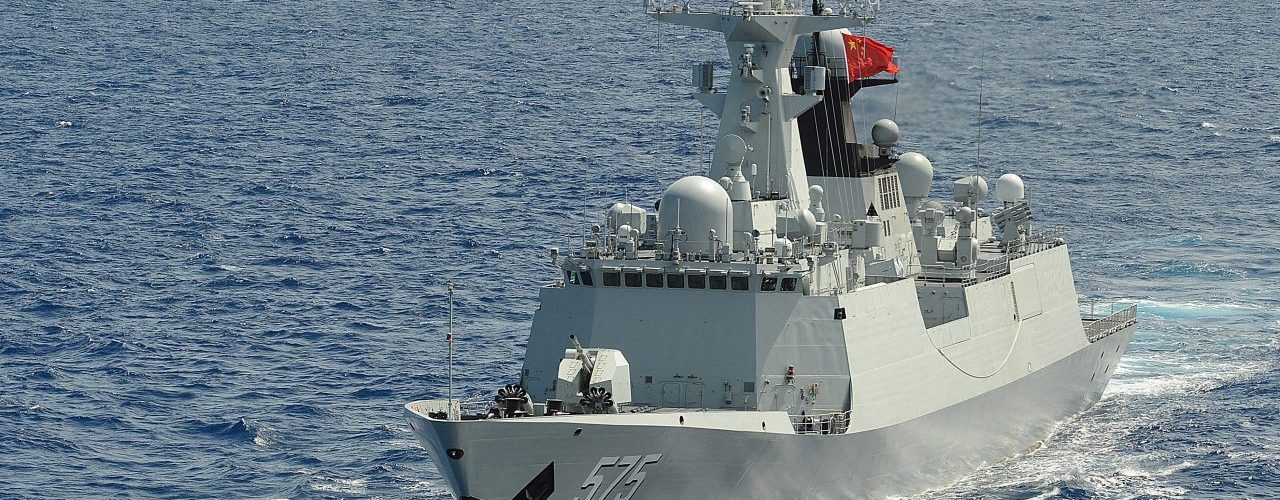“China joins the US, France, and Japan, among others, with permanent bases in Djibouti.”
In a move to establish the country’s first overseas base, China has sent troops to Djibouti.
Tuesday, two Chinese naval ships left the home based port of Zhanjiang in route to the Horn of Africa. The ships carried an undisclosed number of People’s Liberation Army (PLA) troops.
The Chinese state-run Global Times commented on the importance this new base in Djibouti is. The base is located in the strategically significant Horn of Africa.
“Certainly this is the People’s Liberation Army’s first overseas base, and we will base troops there. It’s not a commercial resupply point. This base can support Chinese Navy to go farther, so it means a lot,” said the paper.
The Global Times said the main role of the base would be to support Chinese warships operating in the region in anti-piracy and humanitarian operations.
“It’s not about seeking to control the world,” said the editorial.
The Chinese Foreign Ministry spokesman Geng Shuang described the base as part of ongoing efforts to help bring peace and security to the region. “China has been deploying naval ships to waters off Somalia in the Gulf of Aden to conduct escorting missions since 2008,” said Geng. “The completion and operation of the base will help China better fulfill its international obligations in conducting escorting missions and humanitarian assistance. It will also help promote economic and social development in Djibouti.”
China’s expanding military reach
China has been expanding its military presence in Africa for years. In a report by the European Council on Foreign Relations (ECFR), China’s operations regarding Africa on peace and security is an “explicit part of Beijing’s foreign policy.” China joins the US, France, and Japan, among others, with permanent bases in Djibouti, a former French colony with a population of fewer than one million residents.
Djibouti’s position on the tip of the Horn of Africa offers strategic access to the Bab el-Mandeb Strait. The strait is only 18 miles wide at its narrowest point and connects to the Mediterranean Sea via the Suez Canal and the Red Sea to the Gulf of Aden and the Indian Ocean beyond. One of the world’s most important sea-lanes, millions of barrels of oil and petroleum products pass through the strait daily, according to Globalsecurity.org.
UN missions
Over the last few years, the PLA has sent 8,000 UN peacekeeping troops as a “standby force” which amounts to 20% of the total troops committed by 50 nations to the effort. Besides troops, China has also committed $100 million to the African Union standby force and $1 billion to establish the UN Peace and Development Trust Fund. China currently has more than 2,500 Chinese combat-ready soldiers and police officers deployed in UN missions in Africa.
Benefit to China as well as Africa
“The overseas deployments give the PLA a new and expansive training ground and the ability to build field experience abroad as well as help secure Chinese economic interests in places such as South Sudan,” said the ECFR report.
“China’s involvement in African security is a product of a wider transformation of China’s national defense policy. It is taking on a global outlook and incorporating new concepts such as the protection of overseas interests and open seas protection,” said the ECFR report.
Elsewhere in Djibouti, the US military operates the Chabelley Airfield, from which the Pentagon stages drone airstrikes, likely into Somalia and across the Bab-el-Mandeb Strait into Yemen
Edward Paice, director of the London-based Africa Research Institute, said a base in Djibouti makes a lot of sense for China, just as it does for Japan or the US. “It’s a confluence of these factors trade, military, and stability in the host country’s government” that brought China to Djibouti, Paice said.

















